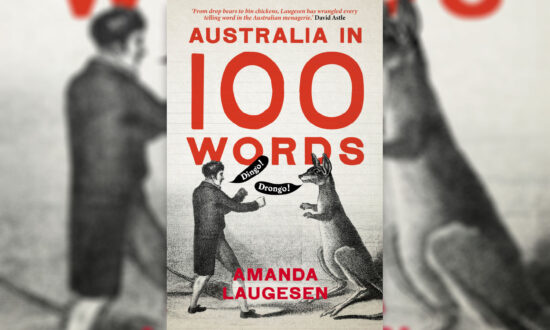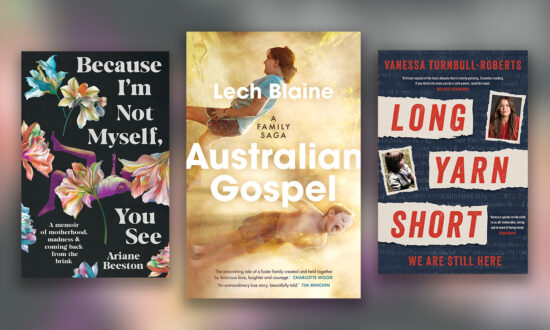There’s a saying – I’m not sure if it’s an official one, or just something my friends and I have said forever. Everyone should have to work in hospitality or retail, at least once in their lives. It teaches humility, patience, and a realistic sense of how important you are in the lives of strangers. (Not very.)
As an on-off bookseller for more than 25 years, I like to think I’ve learned those lessons. But for every customer who’s “complimented” me on seeming smarter than they thought, or demanded I get the publisher on the phone because they didn’t believe me that a book was no longer available, or asked if I ever dream of lighting a match and dropping it among the books (all true stories), there are so many more genuinely enjoyable interactions. Which is why I still do it: for the pleasure of helping someone find the perfect book for their weekend away, leisurely chats about the latest prize shortlist, and getting DMs from favourite customers about new shows I might like.
 Reformed record-store employee Katharine Pollock’s Her Fidelity (Vintage, August) is a love letter to and warning from her trade: the fun of like-minded workmates, meeting your musical heroes and having ex-roadies on hand to help you move furniture, balanced with the grind of peeling price stickers and being mansplained to by customers.
Reformed record-store employee Katharine Pollock’s Her Fidelity (Vintage, August) is a love letter to and warning from her trade: the fun of like-minded workmates, meeting your musical heroes and having ex-roadies on hand to help you move furniture, balanced with the grind of peeling price stickers and being mansplained to by customers.
It’s also, of course, a joyous, rollicking feminist riff off Nick Hornby’s famous lad-lit record-store novel. Kathy has been working at once-terminally-hip Dusty’s Records since work experience, aged 15, nearly a decade ago. She lives in her parents’ basement, speaks mostly in music references, and spends most of her time with rockabilly Dusty’s workmate and bestie Mel, and her decidedly grown-up forever best friend Alex, who has a corporate job, a husband, a small child and a mortgage.
As in Hornby’s High Fidelity, Kathy’s trajectory is characterised by her reluctance to grow up and the unpleasant, slow-dawning realisation of her own self-absorption. She’s awkward, mouthy and genuinely messy. She “almost exercised once”, by sitting on Alex’s exercise bike – but then ate a tub of ice cream while there. Her parents catch her wanking to Dawson’s Creek erotica while listening to Savage Garden. She ends up at the pub (forgetting she has a date) wearing fluffy pink slippers, after ruining her sneakers during a debilitatingly horrible work chore. There’s karaoke, The Go-Betweens, a Yoko debate, and an in-depth argument over record alphabetisation. It’s all great fun.
And on the serious side, Kathy’s journey involves unlearning the performance of being one of the boys, which includes calling out sexism – and allowing herself to discover what she really likes. “It’s not what you like, but what you are like that’s important,” realises Hornby’s protagonist (eventually), learning not to (entirely) judge people by their record collections. Part of Kathy’s lesson is not to judge herself – or other women – by the record collections deemed acceptable by men.
 Another book I picked up because it’s about girls who like music – this time Gen-Xers, my age, rather than Katharine Pollock’s millennials – is Carlene Bauer’s New York novel Girls They Write Songs About (Magpie/One World), endorsed by the magnificent Vivian Gornick. It kicks off at a music magazine, with the intense friendship between Rose, a blazing personality and skilled profile writer (because of the confessions she charms out of people), and Charlotte, precise and careful. Charlotte’s writing “voice” isn’t strong enough to get Rose’s job, so she instead becomes a ferociously competent editor. Early rivalry fuelled by their warring sensibilities soon dissolves into connection, nurtured by their shared love of Lou Reed, vintage dresses, their childhood beaches (Jersey Shore and Long Island), and Jo March and Anne Shirley.
Another book I picked up because it’s about girls who like music – this time Gen-Xers, my age, rather than Katharine Pollock’s millennials – is Carlene Bauer’s New York novel Girls They Write Songs About (Magpie/One World), endorsed by the magnificent Vivian Gornick. It kicks off at a music magazine, with the intense friendship between Rose, a blazing personality and skilled profile writer (because of the confessions she charms out of people), and Charlotte, precise and careful. Charlotte’s writing “voice” isn’t strong enough to get Rose’s job, so she instead becomes a ferociously competent editor. Early rivalry fuelled by their warring sensibilities soon dissolves into connection, nurtured by their shared love of Lou Reed, vintage dresses, their childhood beaches (Jersey Shore and Long Island), and Jo March and Anne Shirley.
There’s much about this book that is familiar – it’s a New York novel; it’s about an intense, doomed female friendship of opposites (think Zadie Smith’s Swing Time, Sigrid Nunez’s The Last of Her Kind – and, closer to home, Diana Reid’s Love & Virtue). It’s about writers, and music, and wildly inappropriate crushes, and relationships gone wrong, and love and jealousy. But I didn’t mind: I am a sucker for all these things. And there are many moments that resonated with me, particularly an honest assessment of the inherent contradictions and compromises of creative careers.
“I had nothing to say really – only the compulsion to say something and get paid for it,” reflects Charlotte at one point. At another, a cynical proposal for an awful book offers a financial lifeline, but might be a creative kiss of death. I think that’s what really made this novel sing for me: its recognition that life is not about “having it all”. Every choice about what to have is also a choice about what to relinquish. And the story of our lives – and the lives of these two women, Rose and Charlotte – is the bittersweet sum of those choices.
It’s not always comfortable to read a book you love – or watch a thoroughly enjoyable film, or Netflix show – with a critical voice in your head. (Like the one that informed me Girls They Write Songs about is blindingly white, and contains two tone-deaf disability slurs.) Especially when that voice points out how the fictional world that’s serving as the equivalent of a warm blanket around your shoulders is sidelining the existence of others. Increasingly, though, I’m invigorated by books that challenge me to acknowledge or sit with discomfort: books that become part of that chorus that defines what I see.
 Root and Branch (NewSouth), an extraordinary personal essay collection by Western Sydney writer Eda Gunaydin, has recently joined my chorus. Eda’s essays are incisive, blazingly honest deep dives into identity and inheritance: her own, as a second-generation Turkish Australian with a difficult relationship with her mother; and Australia’s, as a primarily migrant country settled on occupied land, badly dealing with the inherent insecurity, rightful guilt and legacy of that configuration.
Root and Branch (NewSouth), an extraordinary personal essay collection by Western Sydney writer Eda Gunaydin, has recently joined my chorus. Eda’s essays are incisive, blazingly honest deep dives into identity and inheritance: her own, as a second-generation Turkish Australian with a difficult relationship with her mother; and Australia’s, as a primarily migrant country settled on occupied land, badly dealing with the inherent insecurity, rightful guilt and legacy of that configuration.
For instance, in an essay dissecting the complexities of gentrification (through the lens of Paramatta), Gunaydin unpeels the layers of history, being starkly objective about what anti-gentrification campaigners are trying to preserve. “If displacement did not begin five years ago, but 230 years ago, what use is there in attempting to freeze its current class and racial composition in amber?” It’s a valid position, rarely acknowledged. Reading these words, I felt my brain shift to accommodate them.
Explorations of place, class, race, identity and family trauma are woven with intricate character details and personal reflections. Writing about her complex relationship with her mother, who overfeeds the whole family, even the dog, she writes: “Television tells us she is a whimsical ethnic mother, trying to plug a hole in us through our mouths.” This kind of sharp wryness is seeded throughout. Her parents, she says, in one of many essays that attempts to understand who they are and how they became that way (without idealising or blaming them), are “two people who just got their arses fucking kicked and battered by life, and it’s sort of their fault and sort of not, and it’s not mine”.
In Root and Branch, the reader is invited on an intellectual journey with a forensically socially observant, reflexively analytical tour guide – the kind of journey I relish when I read Maria Tumarkin and Fiona Wright.
 Raised by Wolves (Affirm Press), Jess Ho’s book about their years in hospitality, and their childhood growing up Cantonese in racist outer-suburban Melbourne with a dysfunctional family, is a memoir about a life in food. But it’s also about not fitting in, not having the community of family – and then falling into a place where you feel seen and accepted. For Jess, that starts when they’re 18, combining a creative arts degree with working at an inner-city pub where the chef teaches them to make sausages from scratch (and warns them to study hard so they “don’t have to be a chef when you grow up”).
Raised by Wolves (Affirm Press), Jess Ho’s book about their years in hospitality, and their childhood growing up Cantonese in racist outer-suburban Melbourne with a dysfunctional family, is a memoir about a life in food. But it’s also about not fitting in, not having the community of family – and then falling into a place where you feel seen and accepted. For Jess, that starts when they’re 18, combining a creative arts degree with working at an inner-city pub where the chef teaches them to make sausages from scratch (and warns them to study hard so they “don’t have to be a chef when you grow up”).
This memoir is richly infused with the community of kitchens and restaurants, and a deep love of good food and wine – but it’s also tempered with a tough recognition that it’s hard, grinding work. Late in the book, when Jess leaves the business, they say, responding to shocked reactions: “Hospitality wasn’t my personality. It wasn’t my life. But their [my friends’] understanding of the industry was all cooking shows, Marco Pierre White, Anthony Bourdain, Gordon Ramsay and their feeling of being a diner, receiving the bullshit and performance without knowing it’s just bullshit and a performance.”
I loved those blunt behind-the-scenes recognitions of the performance, which reminded me of my chef housemate when I was in my twenties: he’d left school for an apprenticeship, and was amazed at the glossy MasterChef contestants all dying to work in restaurants because they loved to cook at home and eat out. I also loved the scenes where Jess, who worked as a judge on one of those TV cooking shows, writes about how much they hated that job, especially the gender performance required by commercial television: wearing make-up and squeezing into dresses. (As you may have guessed from the pronouns, Jess realised, after some years, that they are non-binary – yet another way in which they don’t fit society’s given categories.)
And while foodies will find plenty of descriptions of ingredients, meals and restaurants to make their mouths water, Jess’s mission of deconstructing myth and glamour continues with the food aspect of the book. On a trip to New York, they find their researched, much-hyped food experiences disappointing.
“The best meals I ate in New York came from endorsements by people who had been displaced, found their communities and carved out a space for themselves in the city,” they say. Their highlights include takeaway from a local roti shop, sourced by Trinidadian Airbnb housemate Ed, and Korean barbecue in Flushing. “Popular food culture was fucked and I hated my life because I had made myself part of the problem … I was going home to a job where I’d be pushing white faces cooking Thai food and dumbing down an entire cuisine into entertainment.”

Get InReview in your inbox – free each Saturday. Local arts and culture – covered.
Thanks for signing up to the InReview newsletter.
Jess no longer works in hospitality. But the watchful fringe-dweller perspective they learned in kitchens and on restaurant floors (and earlier, growing up Cantonese in white Australian suburbs) serves them well in this thoughtful, compelling memoir that’s about so much more than food.
Jo Case is a bookseller at Imprints on Hindley Street and deputy editor, books & ideas, at The Conversation. She is a former associate publisher of Wakefield Press.
Support local arts journalism
Your support will help us continue the important work of InReview in publishing free professional journalism that celebrates, interrogates and amplifies arts and culture in South Australia.
Donate Here




